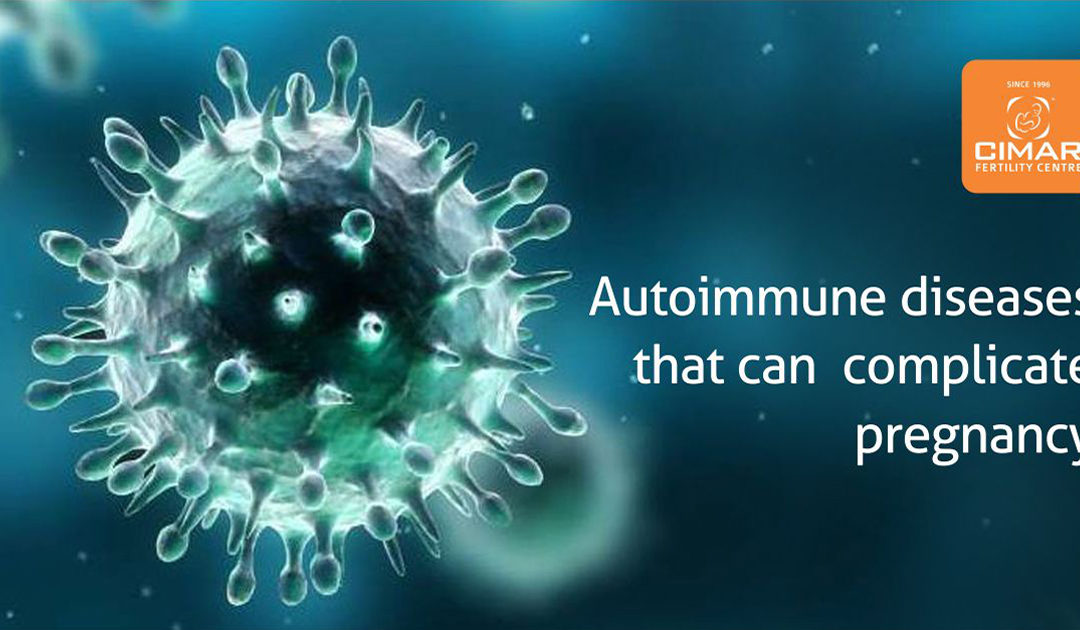A pregnancy comes with a set of physiological changes including hormonal changes which turn a woman’s world upside down. While your body is coping with numerous changes and unexpected turns, interference of autoimmune disorders will make the pregnancy period harder and dangerous. Untreated impacts of autoimmune disorders can pose a threat to both mother and baby. Here are few of the commonly seen autoimmune disorders that can complicate your pregnancy.
Systemic Lupus Erythematosus (Lupus)
One of the most common autoimmune diseases that affect women more than men is systemic lupus erythematosus. It occurs when the immune system attacks the body tissues confusing them with the presence of foreign particles. Symptoms of SLE varies as per the organs that are being attacked. Most commonly seen symptoms include severe fatigue, joint pain, joint swelling, headaches, rashes, hair loss, anaemia and blood-clotting problems.
Untreated SLE can pose serious threats to pregnancy. The possibility of spontaneous abortion, intrauterine foetal death, hypertensive disorders in pregnancy, intrauterine growth retardation, and preterm birth are high in such cases. Some antibodies that are produced as a result of the condition are capable of causing foetal heart block and neonatal lupus.
Myasthenia Gravis
Myasthenia gravis is an autoimmune disease caused by the production of certain antibodies by the immune system which blocks or destroy the receptor cells of the muscles. This leads to the breakdown in the typical communication between the nerves and muscles. Hence, muscles that are under voluntary control will be faced with weakness and rapid fatigue. Symptoms include weakness of arm or leg muscles, double vision, drooping eyelids, and difficulties with speech, chewing, swallowing and breathing. These symptoms progress fast and reach their worst stage within few years since the onset of the disease.
It is generally seen in women younger than 40 years. Even though the disorder is not curable, the symptoms can be relieved through treatment. Pregnant women with myasthenia gravis are at risk of respiratory failure, adverse drug response, and prematurity of the foetus, foetal movement disorder, intrauterine growth problems and death. Exacerbation of several issues caused by Myasthenia gravis usually occurs in the first trimester and early postnatal period.
Immune Thrombocytopenia (ITP)
Immune Thrombocytopenia (ITP) is caused by a condition wherein the immune system attacks the platelets of blood by mistake. Platelets are the blood cells that help clotting and the deficiency of it will lead to excessive bleeding. A low platelet count doesn’t generally cause pain or physical discomfort but some of the symptoms to watch out for including bruising or purple areas or red spots appearing on the skin for no clear reason, blood clots or partly clotted blood under the skin that looks like a lump, nosebleed, bleeding gums and blood in the urine.
ITP is a threat to both the mother and child, hence medical care and monitoring is required for both. With a multidisciplinary care, most pregnancies go uneventful and normal. In case of the mother, care will be focused on minimising bleeding during pregnancy and childbirth. Throughout the pregnancy, platelet count will be regularly checked. And the new-born is at risk of intracranial or visceral haemorrhage due to severe thrombocytopenia.
About the Author
Dr. Parasuram Gopinath is the Senior Consultant & Scientific Director at CIMAR Fertility Center with branches in several parts of Kerala. Tamil Nadu & Dubai. After Dr Parasuram completed his post-graduation in Obstetrics and Gynecology, his work has been mainly focused on infertility and embryology. He had undergone further training in Advanced Reproductive Techniques like Oocyte Cryopreservation, IMSI, IVM etc. from several centers in Singapore, Germany & Canada. He has personally done over 3000 ICSI procedures and was instrumental in introducing the technique of IMSI in South India. He is an Invited speaker at Several National conferences on Infertility and do also have several publications to his credit.

Dr. Parasuram Gopinath, MBBS. MS(OBG)

